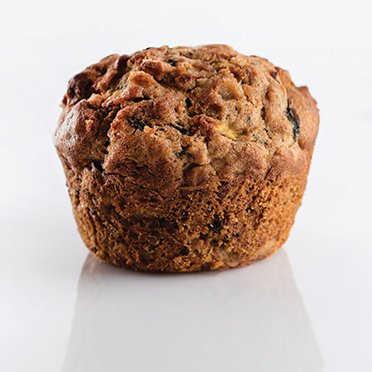Healthy eats for your next road trip
July 22, 2020
Rosemary Weaver, MPH, RDN, LDN, NCH Wellness Center Dietitian

Are you planning a road trip this summer? Today, more people than ever are driving to their vacation destinations. Whether your trip is across the country or just across the county, don’t let healthy eating fly out the window! With a little planning, you can provide your family with foods that will maintain health and provide energy to enjoy exploring the road ahead.
Here are six strategies to make that happen:
- Keep food safety first. While in transit, cold foods need to stay cold (less than 40 degrees F) and hot foods hot (above 140 degrees F) to prevent foodborne illness. Invest in insulated coolers or food totes, cold packs and/or thermos bottles. Or consider a car cooler that plugs into your 12-volt accessory outlet to keep everything chilled; some models even double as a warmer. Remind everyone to always wash their hands with soap and water or use hand sanitizer before eating.
- Bring healthier snack or meal options with you to prevent feeling trapped into eating what’s provided at gas stations, convenience stores or fast food chains. Here are some ideas based on food groups:
- Dairy (keep these chilled): UHT-(ultra-high temperature pasteurized) shelf-stable individual cartons of milk, string cheese or Babybel mini cheese wheels, Laughing Cow light cheese wedges, lowfat Greek or regular yogurt or individually packaged lowfat cottage cheese plus fruit combos.
- Vegetables: Chilled and cut up fresh veggies―baby carrots/carrot chips or radish chips, thin French green beans (blanched first, then chill), celery, cherry tomatoes, mini bell peppers, broccoli or cauliflower florets; or try dehydrated bagged and dried veggies such as ZenB Dried Red Bell Peppers with Tomato or kale chips. Tote mini salads with dressing in small containers. Note: Sorry, veggie potato chips and fresh veggies are not interchangeable.
- Fruit: As is/washed: Apples, oranges, nectarines, clementines, pears, bananas, peaches, plums and cherries; Chilled and cut up: melon, berries, pineapple, grapes; Dried: raisins, cranberries, dates; Dehydrated, freeze-dried bags of fruit such as strawberries, raspberries, apples or pineapple.
- Meat and meat substitutes (some contain fat as well): You’ll get protein from dairy, but here are additional sources: Chilled, rolled up slices of reduced-salt lean turkey or beef, hard boiled eggs, reduced-salt ready-to-eat tuna, roasted chickpeas (roast your own at home or try Biena Chickpea snacks); single serve containers of hummus (enjoy with raw veggies or whole grain crackers); edamame or dried Seapoint Farms edamame snacks; Bada Bean Bada Boom broad bean snacks.
- Nuts, seeds and bars. Fill snack-sized bags with 1/8 to 1/4 cup of unsalted nuts and seeds (perhaps mix with a little dried fruit). Peanut or almond butter tastes great with fresh fruit wedges like apple or pear: Justin’s squeeze pack is a portion-controlled single-serving pack of nut butter. Protein bars provide a protein source in the form of an easy, portable snack, but many of them are not as nutrient dense as whole foods. Read the label to find a bar that has at least 3 grams of fiber, at least 5 grams of protein, minimal added sugars and moderate saturated fat. Kashi’s Go Play Peanut Butter Protein Bar or KIND Breakfast Protein Bar meet these criteria. Note: Some lower-carb protein bars contain sugar alcohols, which can cause digestive distress if eaten in excess.
- Grains: Aim for whole grains: Pop some popcorn in a little olive oil and take it to go or choose individual mini bags of Skinny Pop popcorn. Use whole grain bread to make PB sandwiches with 100 percent fruit spread; enjoy reduced salt whole grain crackers or quinoa crackers. Chilled pasta salad made with whole wheat or lentil pasta can be packed in individual serving cups with lids. For the kids try Pepperidge Farm whole grain goldfish pretzels; opt for graham crackers vs. cookie treats. Combine whole grain cereal, a little dried fruit and some nuts in baggies for a homemade trail mix. Bake up a fruit or veggie quick bread for your trip (banana, blueberry, peach or pumpkin) with whole grain flours and half the sugar called for in the recipe; cut up and bag in individual slices for the road. Or, try our Zucchini Oat Muffins, recipe below.
- Do some pre-travel homework by checking online for restaurants with healthy menu options on the route you plan to travel. Alternately, search for them on the road with an app. For example, Highway Dining for Android and iOS will show you available restaurants along your route in the next 20 to 60 minutes based on your driving direction and speed.
- Drink your water! It’s important to stay hydrated, even if it means an extra rest stop. Bring plenty of water with you and keep it chilled. To make achieving your daily water quota a little more interesting, tote a container of water infused with a bit of your favorite fruit, mint or cucumber. Other hydrating options include sparkling water or caffeine-free iced tea. Avoid excess coffee and stay away from regular pop, diet pop or other sugary drinks. Although a single, “100 percent juice” juice box per day is fine for children, be sure to encourage regular water consumption for your little ones.
- Don’t venture far from your regular eating schedule. Skipping meals can lead to impulsive snacking on less than healthy options. It can also cause irritability or increase the likelihood of overeating when you finally sit down to eat a meal. Plan a light meal or snack about every three-and-a-half to five waking hours, with a nightly cutoff time.
- Take regular stretch and exercise breaks. Eat meals outside whenever you can. Food somehow tastes better when eaten outdoors on a beautiful day.
Have a safe and wonderful road trip!

Zucchini Oat Muffins
This is a great alternative to doughnuts or other breakfast sweets. Pair a muffin with a yogurt or chilled UHT milk and some fresh fruit for a roadside breakfast picnic.
Makes 12 servings (12 muffins)
Ingredients
1 cup packed, pitted dates; boiling water
1 ¼ cups coarsely grated zucchini (1 medium zucchini)
1 cup whole wheat pastry flour
1 cup old-fashioned rolled oats
¼ cup sugar
2 teaspoons baking powder
1 teaspoon ground cinnamon
½ teaspoon freshly grated nutmeg
½ teaspoon salt
2 large eggs
1/3 cup “neutral-tasting” oil (light olive oil or canola)
½ cup coarsely chopped walnuts
- Place the dates in a medium bowl. Pour enough boiling water over them to cover and let soak for 1 hour. Reserve 2 tablespoons of the soaking liquid, then drain the dates well.
- Combine the dates and the reserved liquid in a food processor (mini one, preferably) and puree to form a smooth paste, stopping once or twice to scrape down the sides, as needed.
- Place the grated zucchini in a colander in the sink; let drain for 20 minutes, then gather it up in your (clean) hands to extract as much moisture as possible.
- Preheat the oven to 350 degrees F. Lightly grease a 12-cup muffin pan with cooking oil spray or line muffin pan with paper baking cups.
- Stir together the flour, oats, sugar, baking powder, cinnamon, nutmeg and salt in a medium bowl. Stir together all the date paste, eggs and oil in a mixing bowl until incorporated, then stir in the grated, drained zucchini. Add the flour mixture and stir until no trace of it remains, then stir in the walnuts.
- Divide the batter evenly among the 12 muffin wells. Bake on middle oven rack for 20 to 25 minutes, until a toothpick inserted in center of a muffin comes out clean.
- Serve warm or at room temperature.
Nutrition Facts per muffin:
Calories: 180
Carbohydrate: 28 grams
Fiber: 3 grams
Protein: 4 grams
Fat: 7 grams
Saturated fat: .5 grams
Sodium: 190 mg
Recipe source: Sodexo